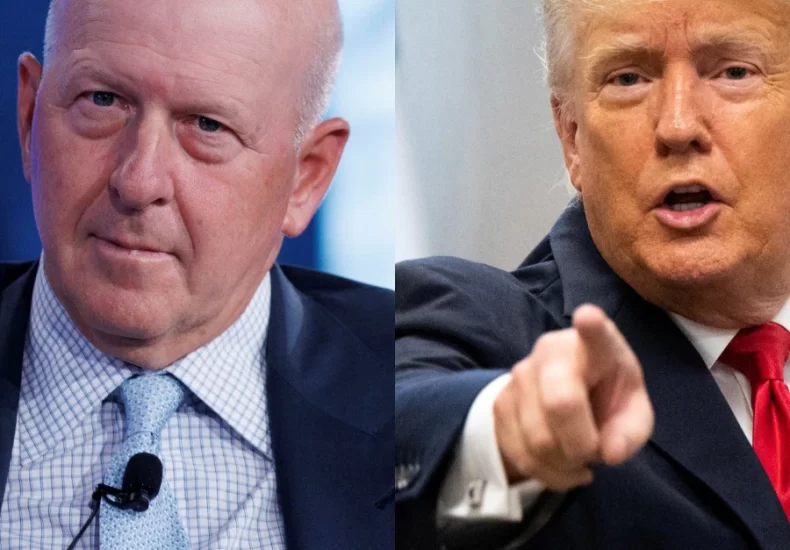
Goldman Sachs Stands by Tariff Forecast Despite Trump Backlash
Goldman Reaffirms That “Tariffs Will Hit Consumers,” Despite Trump’s Criticism
Goldman Sachs is standing firm on its forecast that tariffs will hit consumers, even after President Trump publicly criticized the bank’s economic outlook. Economist David Mericle insisted that his team’s models remain accurate. He told CNBC, “We stand by the results of this study,” and emphasized that consumers will absorb about two-thirds of tariff costs by fall. This projection follows a pattern seen with tariffs in February and April, and it underscores Goldman’s confidence in its analysis.
Firms Absorb At First, Then Prices Rise—Consumers Pay Later
According to Goldman’s research, U.S. businesses initially bore the bulk of the cost. By June, they had absorbed around 64%. Meanwhile, consumers picked up only 22%, with foreign exporters covering 14%. However, looking ahead to October, Goldman projects that 67% of the tariff burden will shift to consumers, while businesses’ share drops below 10%.
This shift could intensify inflation. Goldman expects the core PCE price index—a key gauge for the Federal Reserve—to climb to 3.2% by year-end, significantly higher than the 2% target. Meanwhile, even companies sheltered from foreign competition are raising prices, further fueling inflation.
Trump Challenges Goldman’s Accuracy—and CEO Solomon’s Role
President Trump responded angrily to the report. In a Truth Social post, he mocking suggested that Goldman CEO David Solomon should “get a new Economist” or “focus on being a DJ,” a nod to Solomon’s music hobby. Trump also accused the bank of poor predictions, noting that its earlier recession risk estimate dropped from 60% to 30%.
Nonetheless, Goldman defended its analysis. Mericle emphasized that while tariffs may elevate price levels temporarily, they are not expected to derail the Fed’s focus on labor market strength and longer-term economic trends.
What This Means for Consumers and Policy
- Rising prices ahead: Consumers may face significantly higher prices this fall as companies dial back their absorption of tariffs.
- Fed under pressure: With inflation heating above target, the Federal Reserve may delay rate cuts even if the labor market stays tight.
- Political friction persists: The clash highlights growing tension between Trump’s economic messaging and Wall Street’s predictive models.
This episode spotlights how elevated tariffs could increase inflationary pressures on households, even amid political disputes over their economic impact.
Baca Juga : Semi-Permanent Pink Tattoos Spark a Youthful Trend in Asia